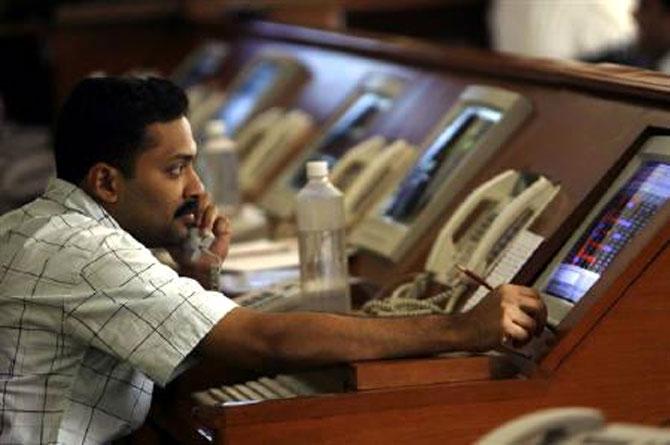The broking industry’s pecking order is set to change with Groww, a fin-tech startup from Bengaluru, poised to topple the industry’s poster boy, Zerodha, as the leading brokerage in the number of active investors.

According to data provided by the portal Topsharebrokers.com, Zerodha has 6.32 million active investors, while Groww is at 5.99 million.
It is projected that Groww, which has grown at a much faster clip over the past two years, will surpass Zerodha this month, or next month.
Interestingly, at the end of March 2021, Zerodha’s investor base was nearly 5x that of Groww.
In FY22 — a blockbuster year for the broking industry – Groww’s user base quadrupled to 3.84 million, while Zerodha, on a significantly higher base, posted 74 per cent growth in its active user base to 6.3 million.
The total number of demat accounts for the broking industry grew 90 per cent to 90 million in FY22. Since FY22, while Zerodha’s growth has remained flat, Groww has seen its user base increase by another 55 per cent.
So has Zerodha lost its mojo or is it a deliberate pivot? Possibly the latter.
In an interview to Business Standard in June 2021, Zerodha CEO Nithin Kamath had indicated that the brokerage does not want to aggressively take more investors on board.
“As an ideology, we don’t offer any cashback or free stuff.
"Trading is serious business and cashback isn’t something that should lure people into trading or investing,” he had said.
“If we had to let go of our account opening fee or offered some cashback, we potentially could have grabbed a much bigger market share.
"But the crowd that is not serious brings in a lot of burden in terms of compliance and support,” he had added.
Industry experts say it is profitable for a brokerage to have fewer investors who trade daily than having a large number of investors who trade once in a while.
Exchanges define an ‘active’ investor as someone who trades at least once a year.
However, amid a boom in direct investing, most brokerages have taken an aggressive approach when it comes to onboarding more investors.
As a result, many investors now have multiple demat and trading accounts with various brokerages.
At the end of August, the total number of demat accounts in the country stood at nearly 127 million.
However, NSE active client data shows only 30 million Indians trade at least once a year on the exchange.
Furthermore, less than half a million investors traded only once a year in the derivatives segment last year.
Therefore, while the demat tally is approaching a tenth of India's population, the number of 'active' investors are just a small fraction and the user base that accounts for bulk of the revenue is an even tinnier fraction.
Nevertheless, it is not uncommon for the broking industry to dole out Amazon gift vouchers, trading credits and bundled offerings to attract new investors.
Besides, several players run referral programmes to incentivise existing investors to get new investors.
During the account opening boom of 2021-22, many brokerages spent up to Rs 2,000 to onboard new investors.
The euphoria has died down as private equity funds have become difficult to come by, growth rates have rationalised and brokerages have started to focus on their bottom line.
All along, Zerodha was seen refraining from such aggressive strategies.
This was largely because it had an early-mover advantage and had already built a roster of sticky investors.
“We continue to be the only broker in the country to charge an account opening fee…
"Collecting an account opening fee right at the start also, in a way, helps set this expectation with a potential customer, filtering out users who may not be serious about trading or investing with us,” said a blogpost by the company tiled 13 years of Zerodha on Tuesday.
This has helped the company make eye-catching profits. In FY22, the Bengaluru-based bootstrapped firm logged a net profit of Rs 2,096 crore on sales of Rs 4,964 crore, according to Capitaline, a companies’ database.
Its FY23 profit was in upwards of Rs 2,907 crore on sales of over Rs 6,875 crore.
Zerodha’s margins (PBT/revenue) if one excludes the pass-through exchange transaction charges are a staggering 70 per cent.
By comparison, Groww had losses swelled from Rs 78 crore in FY21 to Rs 239 crore in FY22, according to a report on Entrackr.
The report says its operative revenue rose 12 times to Rs 351 crore in FY22.
This indicates that the aggressive growth in its user base has come at a cost.
Experts said that while many brokerages have taken on a large user base, many of these accounts are dormant.
“One cannot grow by just doling out sops.
"To break even, you need investors to be very active, particularly since trading charges are at rock bottom,” said the chief executive officer of a brokerage who did not wish to be named.
According to Groww’s website, for the brokerage, trading and demat opening and maintenance charges remain zero.
Zerodha, on the other hand, charges Rs 200 for online account opening.
It also charges for value-added services. The charges for intraday and futures and options (F&O) trades for both the players are largely similar at Rs 20 per executed order.












 © 2025
© 2025